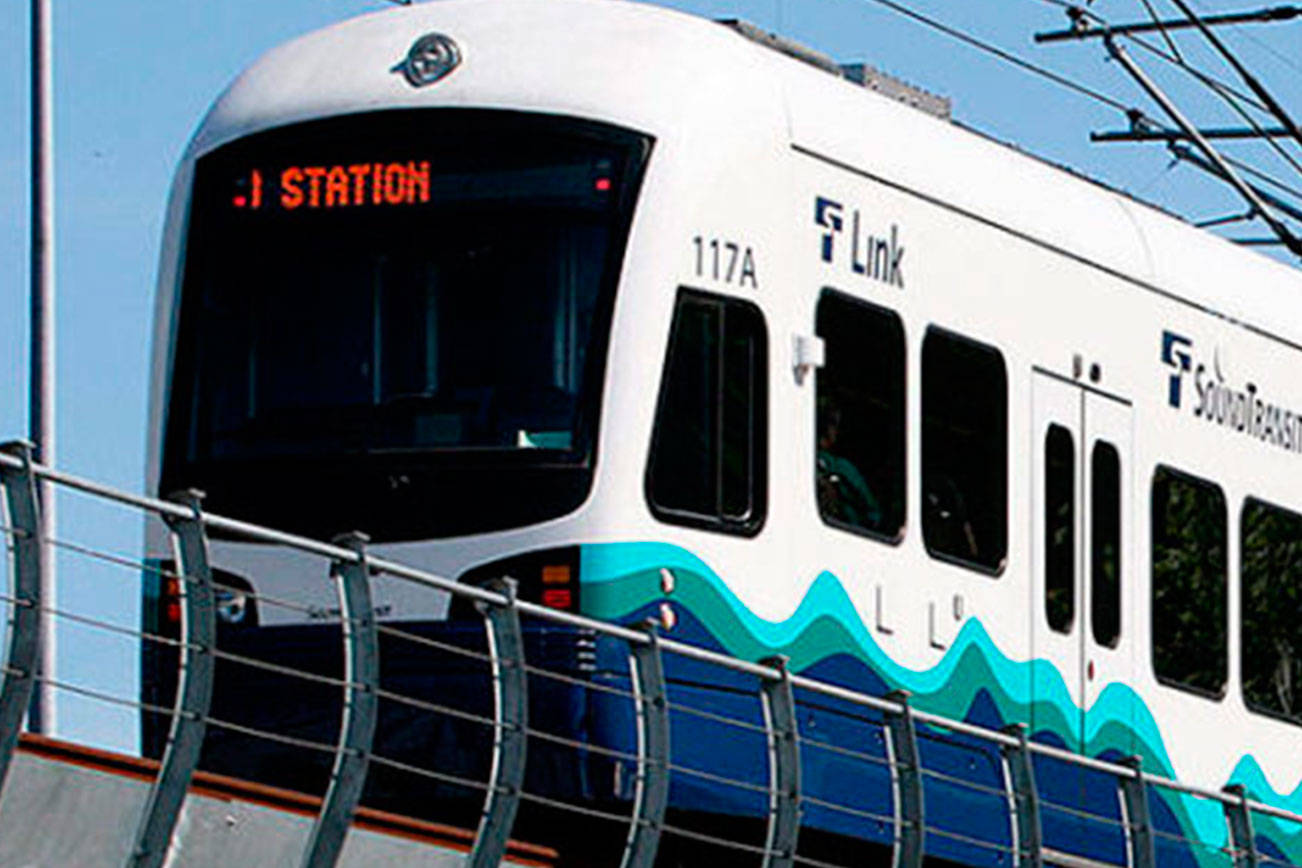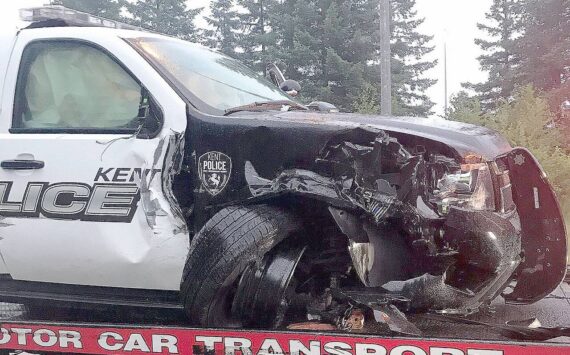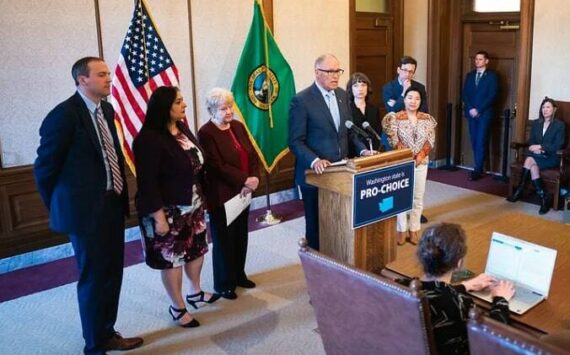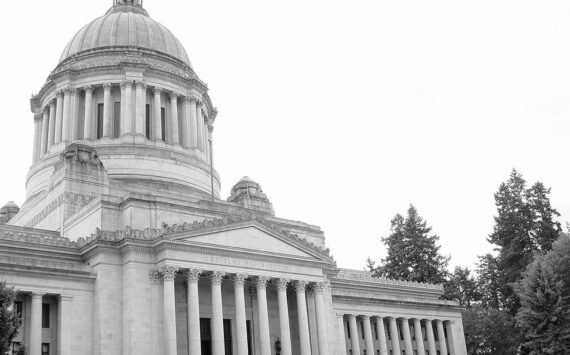Two Republican state senators asserted in a report issued Monday that Sound Transit duped lawmakers then voters in its effort to pass a $54 billion expansion of light rail service to Everett, Tacoma and West Seattle.
The public agency withheld information from lawmakers on the amount of taxes to be raised and misled voters on how much they would pay for Sound Transit 3, concluded Sens. Mike Padden, R-Spokane Valley, and Steve O’Ban, R-University Place, following an investigation by the Senate Law & Justice Committee that they lead.
And while results of the 2016 election in which voters approved ST3 cannot be undone, they recommend lawmakers lower car tab fees and require directors of Sound Transit be elected rather than appointed.
“What is more important is what we do about it in next year’s legislative session.” said Padden, the committee’s chairman, in a statement. “Our investigation shows we need to bring Sound Transit back in line, restore accountability and rebuild public trust.
“Sound Transit played fast and loose with the truth,” he said. “It kept key facts from the Legislature and the voters. Sound Transit has given government at all levels a black eye.”
Padden and O’Ban, the committee’s vice chairman, sent their opinions and recommendations to leaders of the House and Senate committees dealing with transportation and state government issues.
It was unclear Monday if the committee would prepare a formal report of its own.
Democratic members of the committee had no input drafting the findings. They received copies Monday morning shortly before document was sent out to reporters.
“It is the conclusion of those two senators,” said Sen. Jamie Pedersen, D-Seattle, adding there is “literally” nothing new from what critics of Sound Transit have been claiming from the outset of the committee’s probe.
“I don’t think there’s any learning there from the discussions we had in the investigatory hearings or the testimony we heard,” he said.
Sound Transit officials on Monday denied misleading lawmakers or voters.
“Sound Transit provided accurate and thorough public information about the cost of ST3 to district residents through multiple channels while news media did the same,” said Geoff Patrick, senior media relations and public information manager.
Snohomish County Executive Dave Somers, the chairman of the agency board, said the “evidence is (lawmakers) knew what they were voting on. If they didn’t, shame on them.”
The investigation stemmed from a request in May from O’Ban and Sen. Dino Rossi, R-Sammamish.
Their concerns centered on the content and intent of Senate Bill 5987. It passed in 2015, giving Sound Transit authority for this year’s new and higher taxes — including a surge in car tab fees — to finance the expansion.
In the course of its investigation, the Senate Law and Justice Committee reviewed more than 7,000 pages of internal documents, interviewed nine witnesses, and conducted investigatory hearings in Kent on Sept. 26 and in Everett on Oct. 5.
The committee’s Republican leaders argued the wording of the bill obfuscated Sound Transit’s intention to use a 1990s-era depreciation schedule that overvalues vehicles to calculate the excise tax levy rather than a newer one which more accurately traces a vehicle’s declining value.
“The 2015 statute is unconstitutionally drafted,” they wrote. “The appropriate remedy can only be achieved in the courts.”
They concluded Sound Transit misled lawmakers on what they actually wanted to collect from those living in the taxing district that covers parts of Snohomish, King and Pierce counties. Agency officials always represented the amount as $15 billion in legislative hearings not $28 billion, which is how much tax is to be collected, or $54 billion, which is the sum total of the expansion.
Sound Transit disagreed.
It was clear in the 2015 bill what vehicle valuation method would be used for calculating car tabs, Patrick said. Amendments to change the depreciation schedule were debated on the Senate floor and in the House Transportation Committee and rejected, he noted.
As for the amount of money to be raised, he said Sound Transit used the $15 billion figure because initially the expansion plan covered 15 years.
“Based on loud and clear public input covered extensively by news media, the Sound Transit Board chose to extend the new taxes over 25 years to fund a more ambitious plan, thus generating $27.7 billion in new taxes,” he said. Lawmakers “could have but did not include either a spending ceiling or a tax sunset requirement,” he said.
The GOP senators also contend Sound Transit paid membership dues to outside organizations, including Economic Alliance Snohomish County, then coordinated testimony from members of those groups in favor of the 2015 legislation.
“All of this coordination, in such close proximity to the payment of “dues” ran counter to the letter and the spirit” of the prohibition on lobbying by state agencies which would cover Sound Transit, they wrote.
Once the measure, Proposition 1, made it on the ballot, Sound Transit didn’t make clear to voters how much car tabs would increase, they said. Lawmakers should consider “legislation that gives taxpayers substantial and meaningful tax relief,” they wrote.
O’Ban sponsored a car tab relief bill in the 2017 session that passed in the GOP-controlled Senate three times but never received a vote in the House, where Democrats hold the majority. Sound Transit strongly opposed O’Ban’s bill.
Rep. Mark Harmsworth, R-Mill Creek, who attended the committee’s Everett hearing, said he agreed with his Republican colleagues’ conclusions.
“I certainly did feel misled as a legislator. Sound Transit had the opportunity to defend against misleading the voters and legislators and collusion with the mass transit groups and they did not demonstrate clearly what they did.
“What they showed was mass incompetence,” he said. “This shows there was something stinky and needs to be dealt with.”








